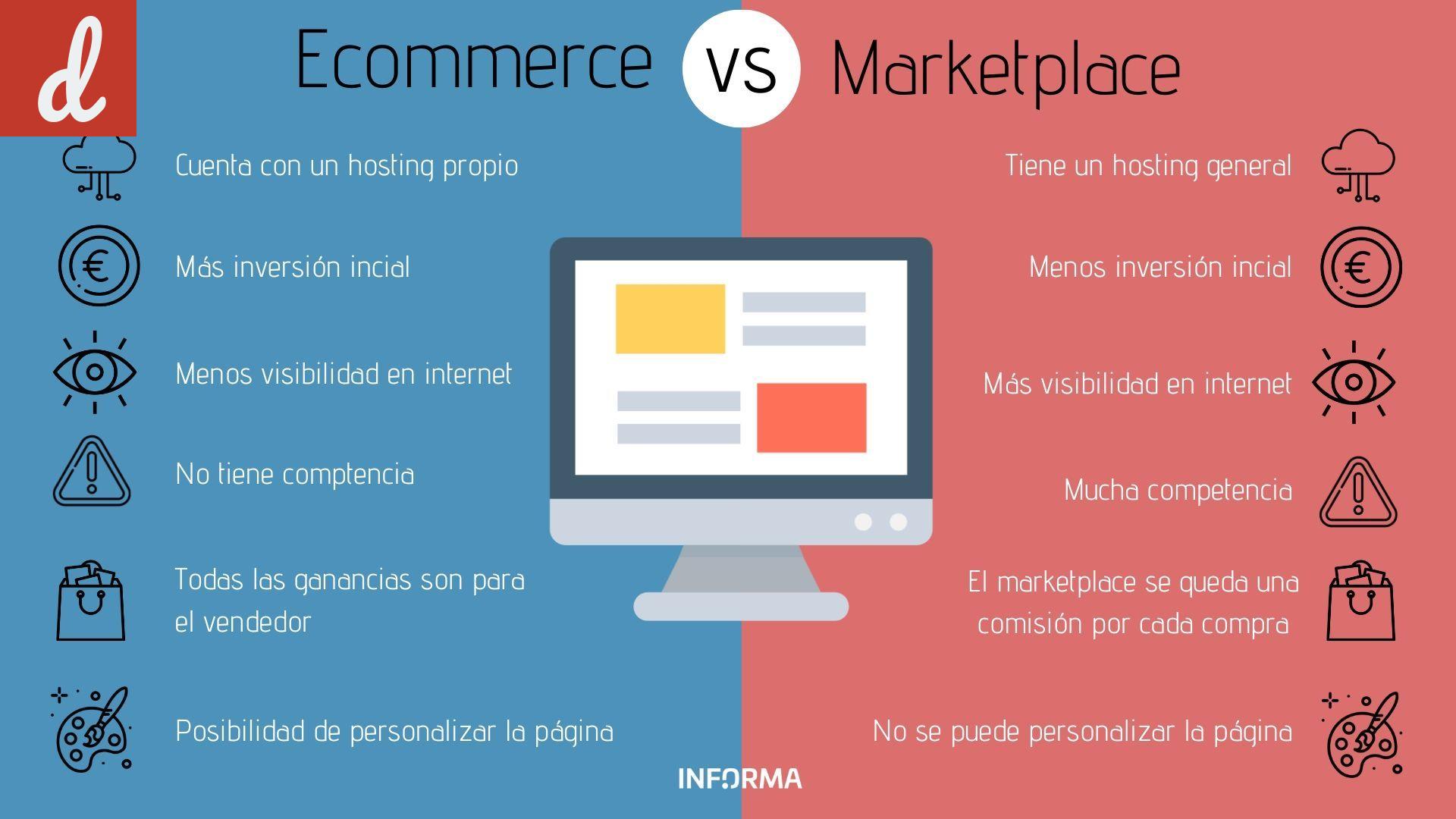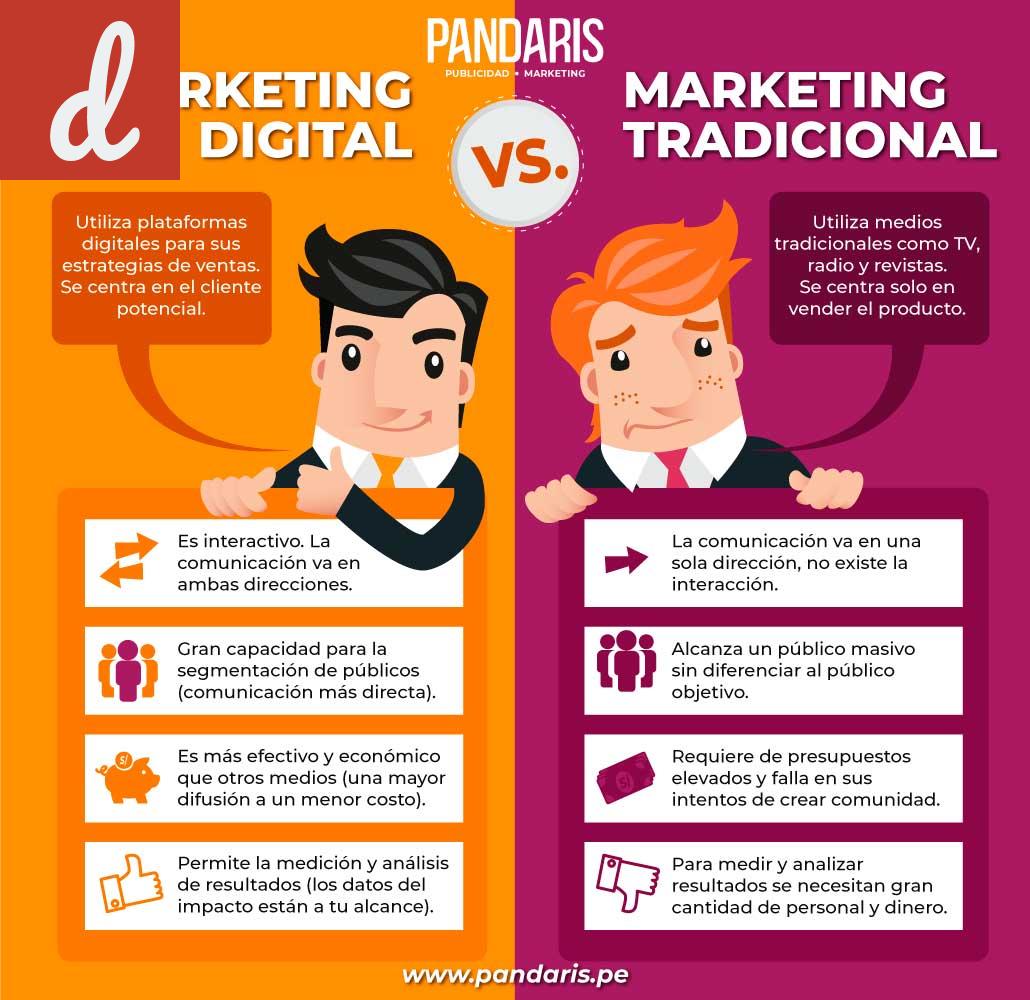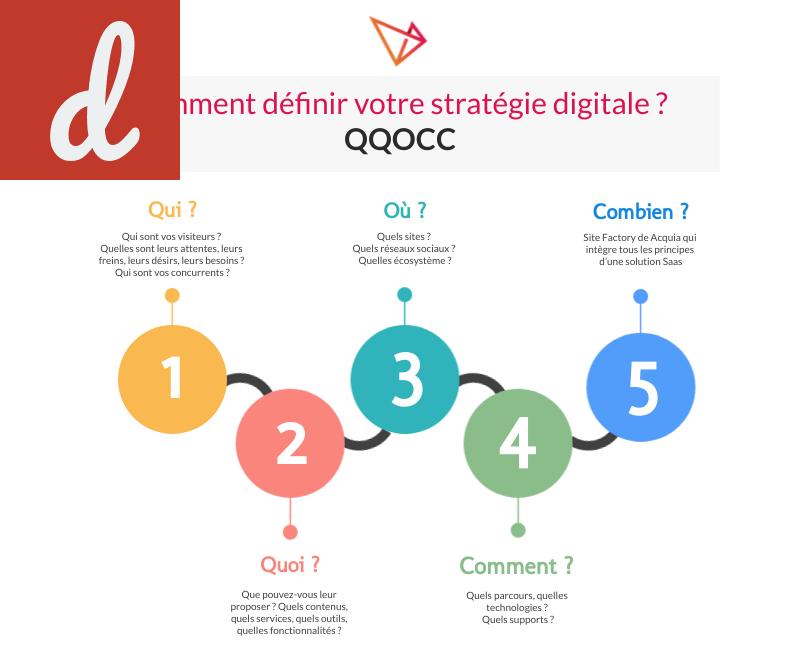Main Title: Understanding the Differences in Digital Marketing Platforms
With the ever-growing importance of digital marketing in today's business landscape, it's crucial for businesses to understand the various platforms available to reach their target audience. From search engine optimization (SEO) to social media marketing, each platform offers unique advantages and strategies to drive more traffic to a website and increase brand awareness. In this article, we will explore the differences in digital marketing platforms and how businesses can benefit from utilizing each one effectively.
When it comes to digital marketing, SEO is one of the most critical factors to consider. It involves optimizing a website's content and structure to rank higher in search engine results pages (SERPs). By targeting relevant keywords and creating high-quality content, businesses can increase their visibility, attract more organic traffic, and boost their online presence. SEO is a long-term strategy that requires constant monitoring and refinement, but the rewards can be substantial.
Social media marketing is another powerful digital marketing platform that enables businesses to connect with their audience on a more personal level. By leveraging popular social media platforms such as Facebook, Twitter, Instagram, and LinkedIn, businesses can create engaging content, run targeted ad campaigns, and build a loyal following. Social media marketing allows for real-time interaction with customers, helps increase brand loyalty, and drives website traffic through shares and referrals.
- Pay-per-click (PPC) advertising is a popular digital marketing platform that allows businesses to bid for ad placement on search engine results pages. Unlike SEO, PPC advertising provides instant visibility and immediate results. Businesses can create targeted ads that appear when users search for specific keywords, effectively reaching their intended audience. PPC advertising offers flexible budgeting options and detailed performance tracking, making it an excellent choice for businesses with specific online advertising goals.
- Email marketing remains a powerful tool for engaging with customers and nurturing leads. By building a subscriber list and sending regular newsletters, businesses can share updates, promotions, and valuable content directly to their customers' inboxes. Email marketing allows for personalized and targeted messaging, helping to build customer loyalty and drive conversions. It's essential to provide valuable content and always seek permission from customers before sending any promotional emails.
While these are just a few examples, understanding the differences in digital marketing platforms is crucial for businesses looking to establish a strong online presence. A well-rounded digital marketing strategy should incorporate a mix of platforms that complement each other to achieve desired goals. By leveraging the power of SEO, social media marketing, PPC advertising, and email marketing, businesses can connect with their audience, increase brand visibility, and drive more traffic to their website.
Main Title
Digital marketing has become a crucial aspect of any business looking to reach their target audience and achieve their marketing goals. With the ever-evolving landscape of digital platforms, it can be overwhelming to choose the right platform for your business needs. In this article, we will compare different digital marketing platforms to help you make an informed decision.
One of the most popular digital marketing platforms is Google Ads. With Google Ads, businesses can advertise their products or services on Google's search engine results pages (SERPs) or on other websites that are part of the Google Display Network. This platform allows businesses to target specific keywords, locations, demographics, and interests, ensuring their ads reach the right audience.
Another widely used digital marketing platform is Facebook Ads. With over 2.8 billion monthly active users, Facebook provides businesses with a massive potential audience. Facebook Ads allows businesses to create targeted ads based on demographics, interests, behaviors, and connections. Additionally, it offers various ad formats, such as image ads, video ads, carousel ads, and more.
- List item 1: Google Ads
- List item 2: Facebook Ads
Instagram Ads is also gaining popularity as a digital marketing platform. Owned by Facebook, Instagram allows businesses to reach a younger demographic and leverage visual content to engage with their audience. Instagram Ads can be created with the same targeting options available on Facebook Ads, making it easy to reach a specific target market.
LinkedIn Ads is a powerful platform for businesses targeting professionals and B2B marketing. As a social media platform for professionals, LinkedIn offers various ad formats and targeting options. Businesses can target ads based on job titles, company sizes, industries, and more, making it an effective platform for reaching decision-makers.
When it comes to e-commerce, Amazon Advertising is an excellent choice. As the world's largest online marketplace, Amazon offers businesses the opportunity to display their products to millions of potential customers. With Amazon Advertising, businesses can target shoppers based on their search queries and product views, increasing the chances of conversions and sales.
Ultimately, the choice of digital marketing platform will depend on your target audience, marketing objectives, and budget. It is recommended to analyze your target market and conduct market research to determine which platform will yield the best results for your business.
Main Title: Key Variations Between Various Digital Marketing Platforms
With the rise of the digital era, businesses are leveraging the power of digital marketing platforms to reach their target audience and drive sales. However, with so many different platforms available, it can be overwhelming to choose the right one for your business. In this article, we will explore the key variations between various digital marketing platforms and help you make an informed decision.
Social Media Platforms
Social media platforms like Facebook, Instagram, Twitter, and LinkedIn have revolutionized the way businesses interact with their customers. Each platform offers unique features and targeting options. While Facebook boasts the largest user base, Instagram is renowned for its visual content and engagement. Twitter, on the other hand, excels in real-time updates and customer engagement. LinkedIn, a professional networking platform, is a great choice for B2B businesses.
- Facebook: The most popular social media platform with billions of active users.
- Instagram: Known for its visual content and high engagement rates.
- Twitter: Ideal for real-time updates, customer engagement, and promoting trending topics.
- LinkedIn: Best for B2B businesses, professional networking, and industry-specific content.
Search Engine Marketing
Search engine marketing (SEM) platforms, such as Google Ads and Bing Ads, enable businesses to appear in search engine results when users search for specific keywords. These platforms allow you to create targeted ads based on user intent and demographics. Google Ads, being the most widely used SEM platform, offers various advertising formats like search ads, display ads, and video ads. Bing Ads, although with a smaller user base, can be cost-effective for specific niche markets.
- Google Ads: The leading SEM platform with a wide range of advertising formats.
- Bing Ads: A cost-effective option for niche markets and targeting specific demographics.
Content Marketing Platforms
Content marketing platforms focus on creating and distributing valuable content to attract and engage the target audience. Blogging platforms like WordPress and Medium allow businesses to publish and share informative articles. YouTube, the world's second-largest search engine, is ideal for video content. Additionally, email marketing platforms like Mailchimp and Constant Contact help businesses send targeted and personalized emails to their subscribers.
- WordPress: A popular blogging platform with customizable templates and features.
- Medium: A user-friendly platform for publishing and sharing articles.
- YouTube: Best for creating and sharing video content.
- Mailchimp: An email marketing platform for sending targeted and personalized emails.
- Constant Contact: A platform with advanced email marketing features and analytics.
In conclusion, understanding the key variations between different digital marketing platforms is crucial for making the right choice for your business. Social media platforms are great for engaging with your audience, while SEM platforms can help you reach users actively searching for your products or services. Content marketing platforms allow you to create and distribute valuable content to attract and engage your target audience. Evaluate your business goals and target audience to determine the best digital marketing platform for your business's success.

Main Title: Exploring the Distinctions among Digital Marketing Platforms
As the world becomes increasingly digitalized, businesses are increasingly turning to digital marketing platforms to reach their target audience. Digital marketing platforms provide companies with the tools and resources they need to create, launch, and manage effective marketing campaigns. However, with so many options available, it is important for businesses to understand the distinctions among these platforms to make informed decisions. In this article, we will explore some of the key differences between digital marketing platforms and their unique features.
One of the most prominent digital marketing platforms is Google Ads. Google Ads allows businesses to advertise their products or services on Google search results pages and other affiliated websites. It operates on a pay-per-click (PPC) model, meaning businesses only pay when someone clicks on their ad. This platform is ideal for businesses looking to increase their online visibility and drive targeted traffic to their website.
Facebook Ads, on the other hand, is a social media advertising platform that provides businesses with the opportunity to advertise on Facebook and Instagram. With Facebook's extensive user database and targeting options, businesses can reach specific demographics based on their interests, behavior, and location. Facebook Ads allow companies to create visually appealing ads and engage with their audience through comments, likes, and shares.
- Instagram Ads is a popular platform that focuses solely on advertising on the Instagram social media platform. With its visually-driven nature, businesses can leverage high-quality images and videos to capture users' attention and drive engagement. Instagram Ads offer various ad formats, including photo ads, video ads, carousel ads, and story ads.
- LinkedIn Ads is a powerful platform for businesses targeting professionals and B2B marketing. As the world's largest professional network, LinkedIn allows companies to create ads that are tailored to specific industries, job titles, or company sizes. LinkedIn also offers features like lead generation forms that help businesses capture valuable information from potential customers.
In addition to these popular platforms, there are other digital marketing options available, such as Twitter Ads, Pinterest Ads, and YouTube Ads. Each of these platforms has its own unique features and target audience, making it crucial for businesses to evaluate their marketing goals and target demographics before choosing a platform.
In conclusion, digital marketing platforms offer businesses diverse opportunities to reach their target audience and achieve their marketing goals. Understanding the distinctions among these platforms allows businesses to make informed decisions and choose the right platform that aligns with their marketing objectives. Whether it's increasing online visibility, engaging with customers, or targeting specific demographics, businesses can leverage the power of digital marketing platforms to drive growth and success.
Main Title: A Comprehensive Guide to Different Digital Marketing Platforms
In today's digital era, businesses must adapt to the ever-evolving landscape of marketing and advertising. Traditional marketing strategies are no longer enough to reach a wider audience. This is where digital marketing comes into play. With the emergence of different digital marketing platforms, businesses now have a wide range of options to promote their products and services. In this comprehensive guide, we will explore some popular digital marketing platforms and how they can benefit your business.
Search Engine Optimization (SEO):
SEO is a crucial digital marketing platform that improves a website's visibility on search engines. It involves optimizing your website's content, keywords, and structure to rank higher in organic search results. By using relevant keywords, engaging content, and implementing effective SEO strategies, you can attract more organic traffic to your website and increase your online presence. SEO offers long-term benefits and helps establish your brand as an authority in your industry.
Social Media Marketing (SMM):
Social media platforms like Facebook, Instagram, Twitter, and LinkedIn have become powerful marketing tools. SMM allows businesses to target specific demographics, engage with their audience, and drive traffic to their website. By creating captivating content, running targeted ads, and building a strong social media presence, businesses can generate leads, increase brand awareness, and foster customer loyalty.
- Facebook: With billions of users, Facebook provides a vast audience for businesses to connect with. It offers various advertising tools like Facebook Ads, which allow businesses to create targeted campaigns to reach potential customers. Facebook also provides analytics and insights to measure the effectiveness of your marketing efforts.
- Instagram: Known for its visual appeal, Instagram is ideal for businesses in industries like fashion, travel, and food. With features like Stories, IGTV, and shoppable posts, businesses can showcase their products or services creatively and drive engagement.
Pay-Per-Click (PPC) Advertising:
PPC advertising is another effective digital marketing platform that allows businesses to display their ads in search engine results or on websites and pay only when a user clicks on the ad. With platforms like Google Ads, businesses bid on keywords relevant to their target audience and can reach potential customers who are actively searching for their products or services. PPC advertising offers immediate results and provides valuable data to measure campaign success.
Email Marketing:
Email marketing involves sending personalized emails to a targeted audience to build relationships, generate leads, and promote products or services. This digital marketing platform allows businesses to directly communicate with their audience and nurture them through various stages of the buyer's journey. Email marketing can be highly effective when combined with an opt-in strategy, compelling content, and enticing offers.
Content Marketing:
Content marketing focuses on creating and sharing valuable, relevant, and engaging content to attract and retain a target audience. It involves creating blog posts, articles, videos, infographics, and more. Content marketing helps businesses establish their expertise, build trust with their audience, and drive traffic to their website. By incorporating SEO techniques into content marketing strategies, businesses can improve their search engine rankings and organic traffic.
In conclusion, digital marketing platforms provide businesses with endless opportunities to reach their target audience, build brand awareness, and drive valuable results. By leveraging the power of SEO, SMM, PPC advertising, email marketing, and content marketing, businesses can stay competitive in the digital landscape and achieve their marketing goals. Remember, each platform has its own unique benefits, so it's crucial to determine which platforms align with your business objectives and target audience.



Dec 19, 2023 Elena López says :
Las diferencias entre las diversas plataformas de marketing digital son numerosas y pueden marcar una gran diferencia en el éxito de una estrategia. Algunas de las principales distinciones incluyen la funcionalidad, el alcance de la audiencia, la personalización, la integración con otras herramientas y la capacidad de medir resultados. Cada plataforma tiene sus propias fortalezas y debilidades, por lo que es importante hacer una investigación exhaustiva antes de elegir la más adecuada para tus necesidades específicas de marketing digital. Cómo Elegir La Plataforma Ideal De Marketing Digital Para Tu Empresa